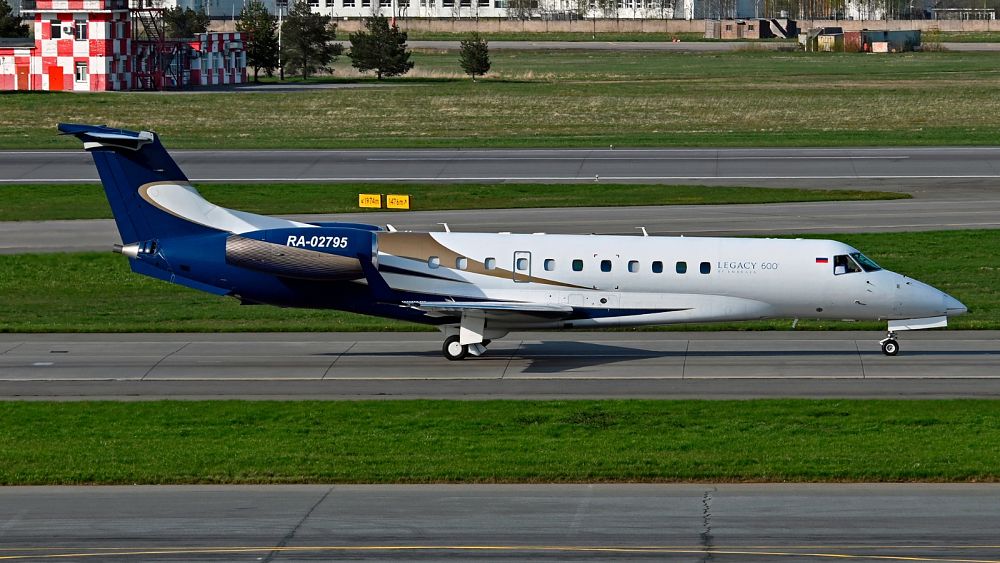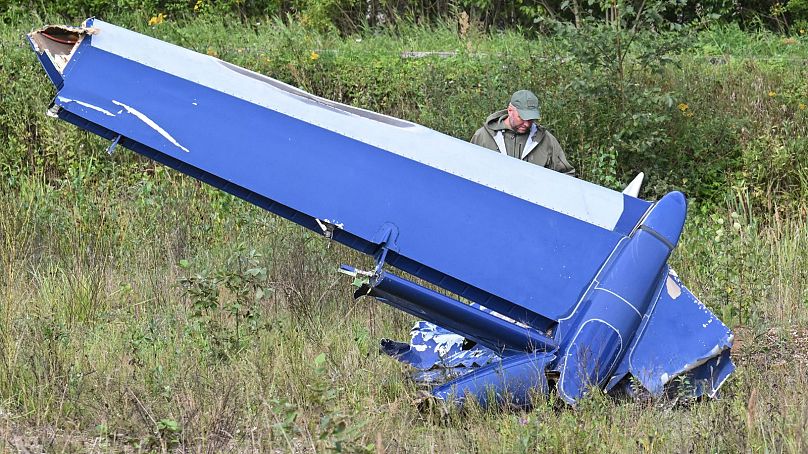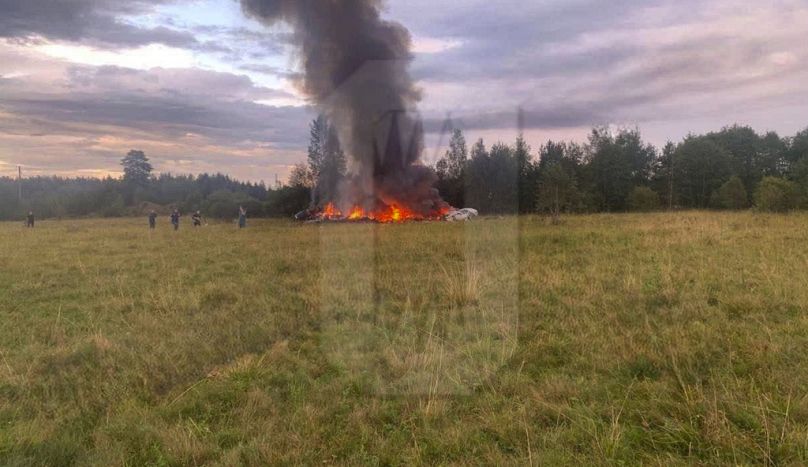
An international air accident expert has explained to Euronews the steps which would normally be taken to investigate a plane crash, such as the one which apparently killed Wagner mercenary boss Yevgeny Progozhin on Wednesday near Moscow.
 ADVERTISEMENT
ADVERTISEMENTIsmo Aaltonen, Finland’s former chief aviation accident investigator, said there’s a strong likelihood that a “criminal act” was involved in the crash, pointing to the circumstances surrounding the incident.
“Look at the owner of the aircraft and the people on board, let’s say there is a big chance of a criminal act,” he said.
He suggested that, on the basis of the video of the crash he had seen, the jet may have broken up while in flight.
“When I was looking at the video I tried to zoom out a little bit and it looked like there was no tailplane,” the veteran investigator told Euronews.
“So it was probably cut off in the air, so in flight break-up could be the case.”

However, Aaltonen said that in an investigation you have to go in with an open mind and try to rule out different potential causes first.
This would involve tracking down the parts of the aircraft, looking at the weather on the day, the aircraft’s history, pilot training and maintenance records.
“Then once we are down at the accident site we would remove the wreckage to the hangar and start the technical investigation,” he said. “Were the engines working properly, as an example. So there are many things to look into and that’s why we use checklists to ensure that we don’t forget anything.”
“Of course we need a team of specialists on site and in this kind of case because this plane was manufactured in Brazil there should be a notification to the Brazil investigation authority,” he added.
“They have a right to nominate representatives accredited representatives to the investigation and they would travel to Russia to assist on the investigation. That includes close advisors from the manufacturer.”
However, he acknowledged this may not happen given the present circumstances in Russia, and pointed to more practical difficulties investigators could have.
 ADVERTISEMENT
ADVERTISEMENT
If the aircraft had a black box recorder, for example, “recorders are often built in by manufacturers in the United States and they haven’t provided any parts from four or five years to Russia, or something like that, so there could be lots of challenges on all that.”
He said mechanical failure is “very rare”, but that it would be ruled out early. They would “concentrate on the markings, any scratches, missile shrapnel or bomb inside the plane, they are visible on parts of the aircraft if a bomb goes off or a missile.”
Given the circumstances surrounding this particular crash, Senior Consulting Fellow of the Russia and Eurasia Programme at Chatham House, Keir Giles, believes we will never conclusively know what happened.
“We are unlikely ever to know the true cause of the crash,” he said. “Whether or not this was a deliberate assassination, the crash is so politically significant that there is no chance of any investigation that will be either transparent or reliable.”





